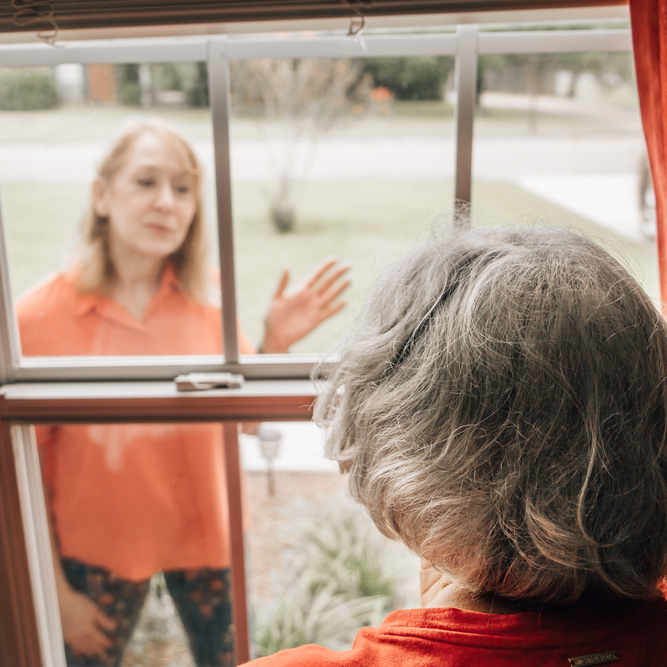Families for Better Care announced today that it has formally asked Florida Governor Ron DeSantis to include at-the-door, molecular rapid testing in any nursing home reopening plan, a crucial piece missing from the Task Force on Safe and Limited Re-Opening of Long-Term Care Facilities' recommendations.
In a letter to Governor DeSantis, FFBC executive director Brian Lee argued that any failure by the governor to include the “right kind of testing” requirement for visitors would be “reckless”, “dangerous”, and “potentially deadly” for residents, staff and even the visitors themselves.
Families for Better Care applauds the panels’ work—despite the absence of the state long-term care ombudsman—and desperately wants families reunited as soon as possible, but families need to be “assured that they will survive” the governor’s visitation plan once its activated.
The following is Families for Better Care’s August 31, 2020 letter to Governor DeSantis:
Re: Nursing Home Visitation Plan
Dear Governor DeSantis:
By now, recommendations from the Task Force on Safe and Limited Re-Opening of Long-Term Care Facilities have reached your desk for your consideration.
We wish to extend our gratitude to the panel's members who worked hard to find some common ground on restoring visitation to families at such an accelerated pace. We believe there are several constructive solutions that have been identified and have the real potential to, at long-last, reunite residents and their families. While we still argue that the panel would have benefited from hearing the residents' perspective during these negotiations—namely from their chief advocate, the state long-term care ombudsman—the panel's work, and your commitment to helping families, should be applauded.
What's missing from the panel's plan is the singular, most crucial piece to any visitation plan. And that is the right kind of on-site, at-the-door rapid testing for anyone entering the facility. Without this right kind of rapid testing, thousands of Floridians living and working in facilities could be inadvertently exposed to the coronavirus. Without the right kind of rapid testing, thousands may suffer painful, and expensive, illness. Without the right kind of rapid testing, thousands could die.
That right kind of rapid testing is "molecular rapid testing." Again, molecular rapid testing, or any rapid testing point of care derivative that can credibly identify asymptomatic or presymptomatic cases in minutes.
If you believe that the rapid test devices and kits that the Center for Medicare and Medicaid Services is presently shipping to nursing homes can be used to test visitors to prevent spread into facilities, then you're gravely mistaken.
The tests the feds are deploying are antigen-based tests, not molecular. The FDA recommends that a negative antigen test be validated with a diagnostic/molecular test. While antigen tests have shown to have a high sensitivity to detecting whether or not a symptomatic patient has contracted COVID-19, antigen tests are not designed for identifying asymptomatic or presymptomatic cases. It's those silent COVID19 carriers that pose the greatest risk to all who live and work in Florida's nursing homes and other congregate care settings.
Surgeon General Rivkees argued that testing would be a potential barrier to visitation. We disagree. The right rapid testing actually demolishes visitation obstructions. The right rapid testing minimizes the threat of the virus from flooding into facilities by catching it, stopping the virus cold in its tracks at the the door, preventing its entry into the facility. Thereby, making it possible to safely open visitation to families.
For the sake of residents and their caregivers, please do not approve any visitation plan unless facilities have the means necessary to conduct molecular rapid testing of anyone visiting a loved one at a facility. Not doing so is reckless. Not doing so is dangerous. Not doing so is potentially deadly.
Make no mistake, Families for Better Care desperately wants families reunited as soon as possible. Families must be able to comfort and pray with each other. Families must be able to advocate for their relatives living in nursing homes and other long-term care settings so they receive quality care.
But families need to be assured that they will survive your visitation plan once it's activated. There is no margin for error for getting this wrong. No one else needs to die unnecessarily because a premature visitation policy failed to have the right kind of testing in place.
Please include a molecular rapid testing requirement in your visitation plan. We've even discovered a way to make that happen at no expense to taxpayers. Use the collected nursing home fines to acquire and deliver molecular rapid testing machines and kits to all nursing homes.
Thank for your consideration of our request. Please know we stand ready to help you and your administration through this crisis.
Respectfully,
Brian Lee
Executive Director, Families for Better Care


